Consumer Debt Help Association, Debt Relief Specialist wants to share a settlement letter from QVC Card / Synchrony Bank. Bal. $4876.37 Offer $1550.00 Savings $3326.37
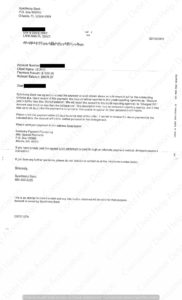
Consumer Debt Help Association, Debt Relief Specialist wants to share a settlement letter from QVC Card / Synchrony Bank. Bal. $4876.37 Offer $1550.00 Savings $3326.37

Consumer Debt Help Association, Debt Relief Specialist wants to share a settlement letter from Citibank. Bal. $6617.86 Offer $1655.00 Savings $4962.86
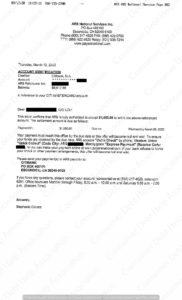
Consumer Debt Help Association, Debt Relief Specialist wants to share a settlement letter from Amazon/Synchrony Bank. Bal. $817.02 Offer $285.96 Savings $531.06

Consumer Debt Help Association, Debt Relief Specialist wants to share a settlement letter from Best Buy/Citibank. Bal. $1351.46 Offer $473.01 Savings $878.45

Consumer Debt Help Association, Debt Relief Specialist wants to share a settlement letter from Plain Green Loans. Bal. $2923.50 Offer $1023.23 Savings $1900.27
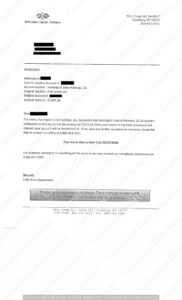
Consumer Debt Help Association, Debt Relief Specialist wants to share a settlement letter from PayPal/Synchrony Bank. Bal. $3354.10 Offer $1509.35 Savings $1844.75
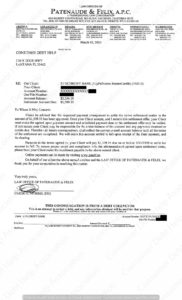
Consumer Debt Help Association, Debt Relief Specialist wants to share a settlement letter from American Express. Bal. $1807.04 Offer $635.00 Savings $1172.04
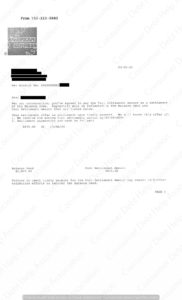
So, you’ve disputed an item on one of your credit reports, and now you’ve gotten your response. Now what? These tips about how to read the results of your credit report dispute can help.
Decoding the terminology
First of all, it’s important to understand the terminology you might find in the results of your credit report dispute. Each credit reporting company can use their own phrases, and here are some terms to look out for:
Once you understand the terminology, you’ll likely want to know what you should do next. If you’re happy with the results of your credit report dispute, then there’s most likely nothing else you need to do.
However, if you still think the report has inaccuracies, you have the option of filing a “statement of dispute.” This is a statement that can be put on your credit report that describes the information you’re disputing. You can add a statement of dispute through the credit reporting company showing the error.
Finally, if your dispute was deemed frivolous, you could re-file the dispute with the proof you weren’t able to include the first time.
Remembering the purpose of a credit report dispute
When all is said and done, it’s important to remember the purpose of disputing your credit report. The purpose of disputing a credit report is to correct inaccurate or out-of-date information. The purpose is not to clean up negative items that you wish to have removed from your report, which will happen.
According to the Fair Credit Reporting Act (FCRA), consumer reporting agencies must “adopt reasonable procedures” that are “fair and equitable to the consumer, with regard to the confidentiality, accuracy, relevancy, and proper utilization of such information.”
What’s more, if the consumer finds inaccurate information on their report, the consumer reporting agency must:
“ … free of charge, conduct a reasonable reinvestigation to determine whether the disputed information is inaccurate and record the current status of the disputed information, or delete the item from the file … before the end of the 30-day period beginning on the date on which the agency receives the notice of the dispute from the consumer or reseller.”
What all this means is that the FCRA has outlined a right for consumers to have fair and accurate credit reporting. The FCRA also empowers them with the ability to dispute inaccurate information. Although the FCRA does not outline a right to have accurate negative information removed from your credit reports, positive borrowing behavior and time can diminish the effect of negative items.
You don’t have to stop here
Credit reports are dynamic documents that are typically updated at least once a month. That’s why checking your reports regularly after a dispute can be an important tool in solving issues quickly.
Reviewing your credit reports helps you spot mistakes quickly if they happen, as well as signs of potential identity theft. In other words, this simple act is one that can help you protect your financial health in more ways than one. A little bit of time can go a long way in obtaining accurate credit reports.
Consumer Debt Help Association, Debt Relief Specialist wants to share a settlement letter from TD Bank. Bal. $5671.80 Offer $2100.00 Savings $3571.80
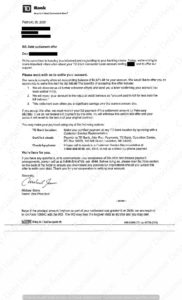
Consumer Debt Help Association, Debt Relief Specialist wants to share a settlement letter from Victoria’s Secret/Comenity Bank. Bal. $2038.52 Offer $585.00 Savings $1453.52
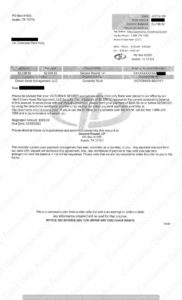
copyright 2024 Consumer Debt Help Association - 516 N. Dixie Highway, Lantana, FL 33462. All Rights Reserved